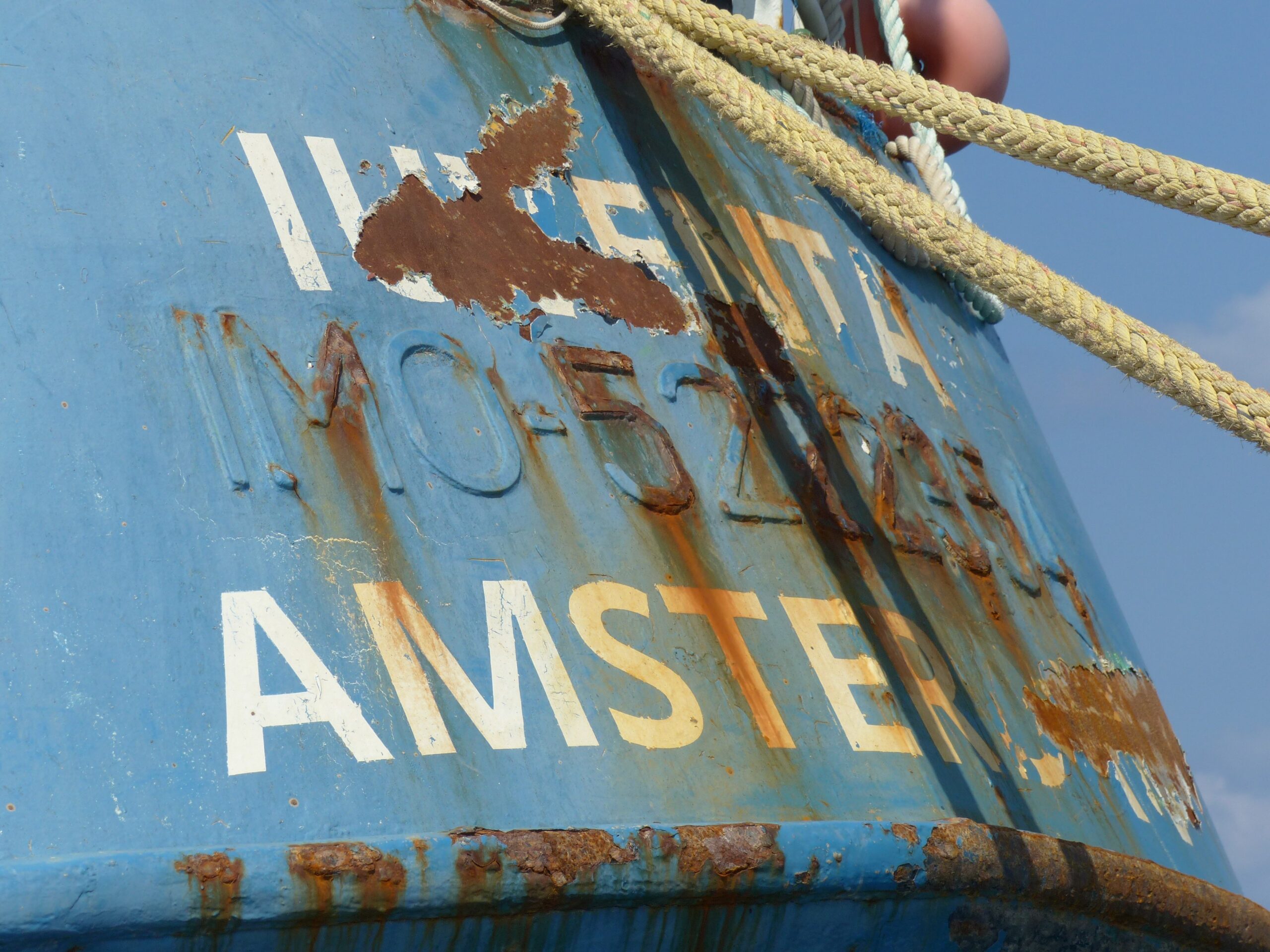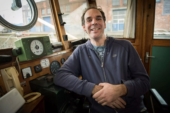Cross-examination reveals that the main witnesses against the German crew of the “Iuventa” acted out of selfish motives and told lies. A total of 21 people are on trial in Sicily in the proceedings.
The “Iuventa” from the Berlin-based organisation “Jugend Rettet” was the first of many other ships that Matteo Salvini prevented from carrying out civilian sea rescues in the Mediterranean from 2017 – first as an MEP for the far-right Lega Nord party, later as Interior Minister in Giuseppe Conte’s cabinet and today as Transport Minister in the right-wing government of Giorgia Meloni. Nevertheless, the “Iuventa” case is unique; the police have been investigating it for around five years and the judiciary has been dealing with it since 2021.
At the request of the Public Prosecutor’s Office, the court in the Sicilian harbour city of Trapani is hearing preliminary proceedings for “aiding and abetting illegal immigration”. The indictment of almost 30,000 pages relates to three rescue missions between September 2016 and June 2017. The German crew is alleged to have collaborated with Libyan smugglers; four crew members have been charged and face up to 20 years in prison.
The proceedings involve a total of 21 defendants, including members of Save the Children and Doctors Without Borders as well as the Dutch shipping company Vroon, from which the non-governmental organisations had chartered a ship. All of them together are accused of having formed a “network for illegal immigration”.
The alleged evidence against the Iuventa crew is footage taken by a Reuters journalist of a dinghy towing another empty refugee boat – although this was being towed northwards, as an independent investigation was able to prove. In addition, the crew of the “Iuventa” allegedly did not intervene when smugglers disappeared with the outboard motor of another refugee boat in the direction of Libya.
As further evidence, the public prosecutor’s office has submitted wiretap transcripts that probably go back to a wiretap on the bridge of the “Iuventa”. According to these, a crew member said that photos of smugglers should not be handed over to the police as requested. However, the main allegation is that two people with dark skin colour – allegedly smugglers – sailed away from the “Iuventa” on a boat in the direction of Libya. The two former police officers Pietro Gallo and Floriana Ballestra claim to have spotted this, making them the main witnesses for the prosecution.
Gallo and Ballestra had been employed by the Italian security company IMI Security. This company subsequently commissioned the Berlin-based organisation Save the Children to provide various services on its rescue ship “Vos Hestia”. In two of its missions, the “Iuventa” handed over rescued refugees to the much larger “Vos Hestia”.
Gallo initially sent an email with his “observations” to Italy’s military intelligence service – but there was no reply. The ex-policeman then reportedly called Salvini’s office in Milan. After half an hour, the Lega Nord politician called back, offered a meeting and asked Gallo to send further information via WhatsApp.
On Saturday, the court heard Gallo and Ballestra for the first time. The Public Prosecutor’s Office sees the two as “trustworthy eyewitnesses” and justifies this with their background as police officers. However, it emerged during the proceedings that Gallo and Ballestra were dismissed from the police force because they were accused of lying, fraud and defamation. They apparently wanted to compensate for this by acting in favour of the authorities and the Lega Nord: Gallo was aiming to return to the police force, while Ballestra was hoping for a position in the far-right Lega Nord party, the crew of the “Iuventa” explained on Sunday.
The authorities were informed about the hidden intentions of the two witnesses through further wiretapping. The Public Prosecutor’s Office had nevertheless presented them as credible witnesses in order to paralyse the civilian sea rescue service in the proceedings against the 21 defendants, ex-captain Beigui told “nd”. In court, however, the allegations collapsed. “You could have sat a cuddly toy down in court with a note around its neck,” says Beigui.
In fact, various lies were dismantled during cross-examination: For example, one of the witnesses had claimed that the captain of the “Vos Hestia” had forbidden him to disembark in order to speak to authorities. However, this requirement was due to a precautionary quarantine measure and applied to all crew members. The ex-policemen had also stated that rescued persons had brought drugs on board the “Vos Hestia”. However, such a package could only be confirmed in one case, which contained soil from Eritrea that a refugee had brought as a memory.
The court has scheduled a further four sessions in the preliminary proceedings with closing statements from all parties until 2 March, when it will be decided whether the defendants will face a main trial.
“We are seeing a Europe-wide trend towards criminalising solidarity with refugees,” says Wolfgang Kaleck, Secretary General of the Berlin-based European Center for Constitutional and Human Rights, commenting on the ongoing proceedings. The internationally active human rights organisation has observed this not only in authoritarian states, but increasingly also in democratic ones.
Meanwhile, the “Iuventa” remains in the harbour of Trapani, rotting away, allegedly because the authorities want to prevent the ship from being used for criminal purposes in the future. The court in Trapani therefore recognised that the authorities had breached their duty of care and ordered the ship to be restored to its original condition. The “Iuventa” has since been taken out of the water, but further work has stalled. Together with twelve non-governmental organisations, the crew therefore filed a criminal complaint for inactivity in November.
Published in German in „nd“.
The rescue ship “Iuventa”, which once sailed under the Dutch flag, is rotting in the port of Trapani, prompting various organisations to file a criminal complaint (Image: Iuventa crew).





Leave a Reply